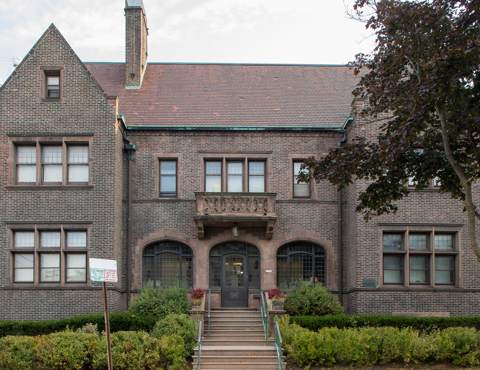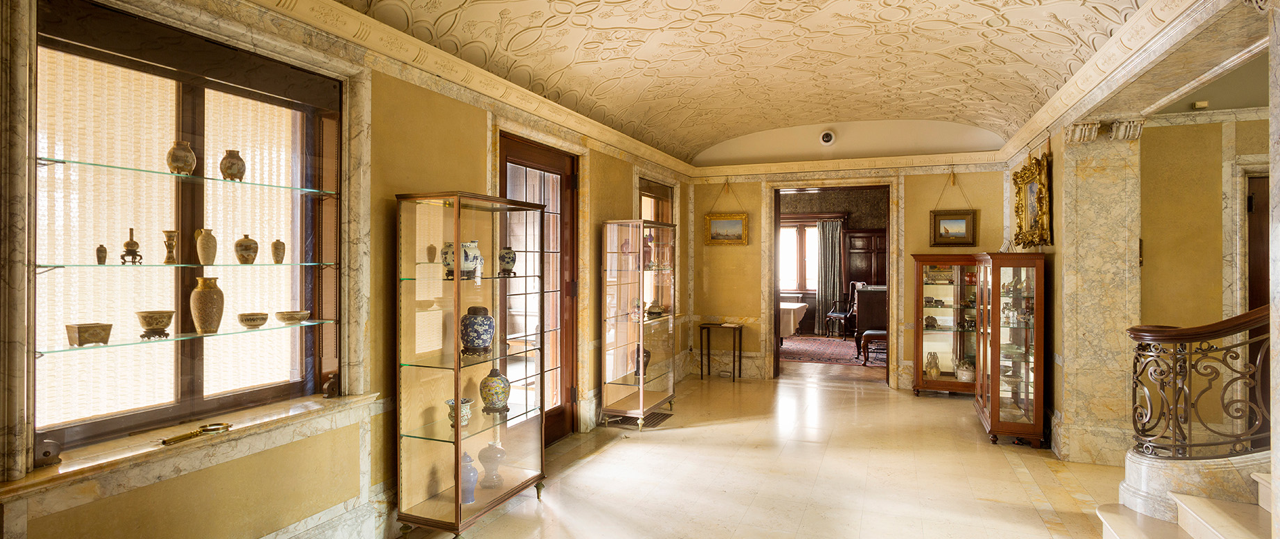Mar 19, 2026 | Apr 18, 2026
Hours
Updated on 11/24/25
Thursday & Friday — 11 a.m. - 5 p.m.
Last entry is at 4:30 p.m.
Saturday — 12 p.m. - 4 p.m.
Last entry is at 3:15 p.m.
Special events occasionally affect these hours.
We are Closed
The museum is closed on the following holidays: Thanksgiving, Christmas Eve, Christmas Day, New Year’s Eve, New Year’s Day.
We are closed Thanksgiving Weekend 11/26 - 11/29
Enter the museum through the coach-house door on the Royall Place driveway.
Admission
The first Thursday of the month is always free.


Originally, this space functioned as the Allis’ front entrance hall, where visitors to the mansion were received before meeting with the Allises. The Marble Hall’s name derives from the four Italian marbles covering the walls and floor. Marble craftsmen from Italy were brought over to install it. The use of marble in the entrance deviates from the traditional Tudor-style entryway.

There is a marble fountain in front of the south window of the Dining Room that was purchased at an exhibition in Paris. It’s dated sometime between 1875 and 1900. The fountain was plumbed and fully functional, and is signed by the artist. The original operating instructions are included in Charles’ correspondence with his dealers and include detailed drawings.

This is the original entrance to the Allis’ home. The front door is made of bronze and the enclosed porch is walled with Lake Superior sandstone. The sandstone was chosen to create passive heat retention in this outer vestibule. The woodwork is quarter-sawn oak. On display are two baptismal fonts.

The billiards room located in the basement of the home once contained Charles’ billiards table, one lane of bowling, and the mansion’s wine cellar. Off the room is a full bathroom featuring the original spa shower.
Charles Allis began accumulating his vast collection while still a young man, interested in many cultures from around the world. Working with various art dealers, he educated himself reading books about art, and he researched each purchase diligently.